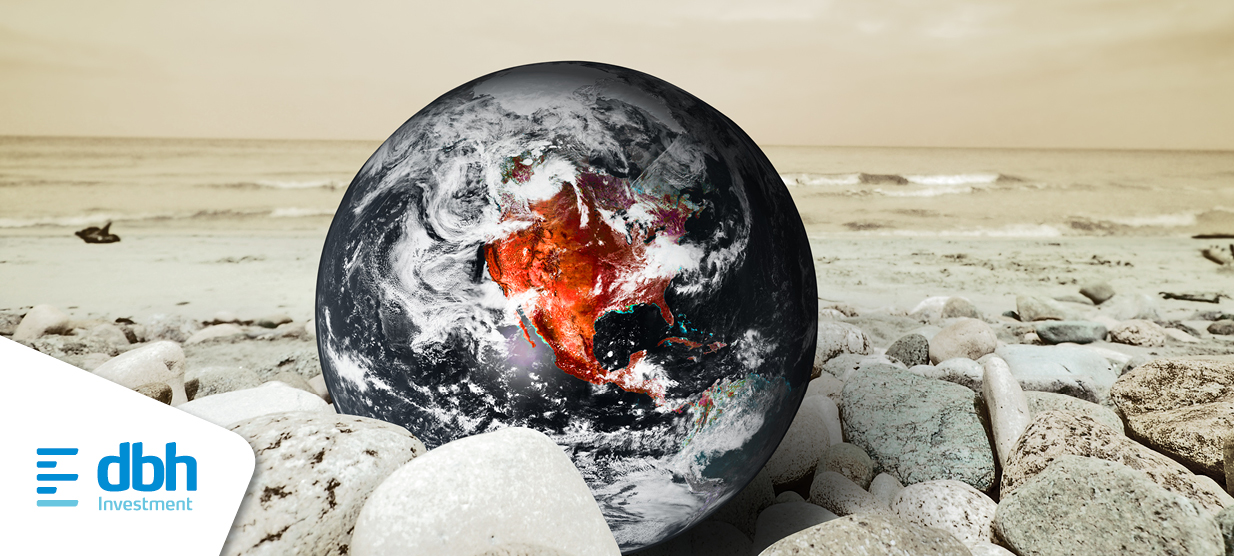Climate change, innovation and the economy
The Gábor Dénes Laureates Club held its Climate Day online on the 23rd of February, where we heard three thought-provoking presentations on the importance and consequences of climate change, as well as its economic impact.
Dr. Diana Ürge-Vorsatz, professor at CEU, renowned climate scientist and physicist, one of the Vice Chairs of the Nobel Peace Prize winning IPCC started off the event. In his presentation, she presented the IPCC’s report assessing the current state of our planet, which is a cause for concern but also plenty of hope.
The increased number of extreme weather phenomena in recent years clearly indicate that irreversible changes are taking place on our planet, but it doesn’t mean we are helpless. Although it is almost certain that we have lost the coral reef wildlife, there are still many climate tipping points ahead of us which can be avoided via hard commitments.
140 countries committed to limit global warming to 2 degrees until 2050 in the Paris Agreement. If we achieve this goal, there is still chance to stop the erosion of the ice sheets, save the Amazon rainforest or prevent the collapse of the Gulf Stream.
Otherwise, we must face serious consequences which will not only cause the rise of iglobal temperatures, but 3.5 billion people will live in an area with a climate that is not suitable for human habitation.
The threats of global warming and greenhouse gases were also discussed in detail by Dr Judit Bartholy, Professor of Meteorology at ELTE, Head of the Doctoral School of Earth Sciences, as the second speaker of the conference.
We got insights into the Glasgow COP 26 Climate Change Conference from her. It was discussed and agreed that instead of the 2 degrees agreed upon in Paris, a warming of one and a half degrees should be targeted, because the ongoing climate changes are causing unknown phenomena for which we cannot prepare. We don’t even have to wait for them long, as the tornadoes in the Czech Republic and the floods in many parts of Germany were unprecedented weather anomalies.
But alongside the daunting natural disasters, there was also reason to rejoice. There was also unprecedented political commitment towards change. For example: pledges to reduce coal use, halt intensive deforestation, reduce methane emissions and accelerate the transition to electric vehicles. In addition, 71 countries have committed to carbon neutrality.
But political ambition and promises are far from enough to secure a viable future. DBH Investment board member Dr. László Ürge, Gábor Dénes Prize-winner chemist and Distinguished University Professor at the University of Pannonia, presented the obstacles that need to be overcome through analysis of how the economic systems function.
Human consumption and the economic activity that supports it are using up the earth’s finite resources to such an extent that, if we continue at this rate, by 2050 3 Earths will be needed to sustain the current economic system. Furthermore, the carbon footprint of economic activity is not taken into account and reducing it is a much more complex task than making the energy sector green. He has shown that the renewable energy sources are also not carbon free and they have significant carbon footprint built in. In addition, at the end of their life cycle we do not take into account the waste management issues. It has been shown that without a systemic implementation of circular economy, there is no real chance of achieving climate targets.
The need and the scale for decarbonization of industrial processes was demonstrated through the plastic value chain. The data shows that in the current linear economic model, decarbonisation can only go up to a certain level. Full decarbonisation can only be achieved by shifting to a circular economy model. Furthermore, only then can we have the possibility to steer unsustainable resource extraction into a sustainable path to support human consumption.
But the final conclusion is that the greatest impact for humanity can be achieved through sustainable consumption, which in fact will direct sustainable development.

Do not hesitate to contact us
Get in touch, if you have any question


